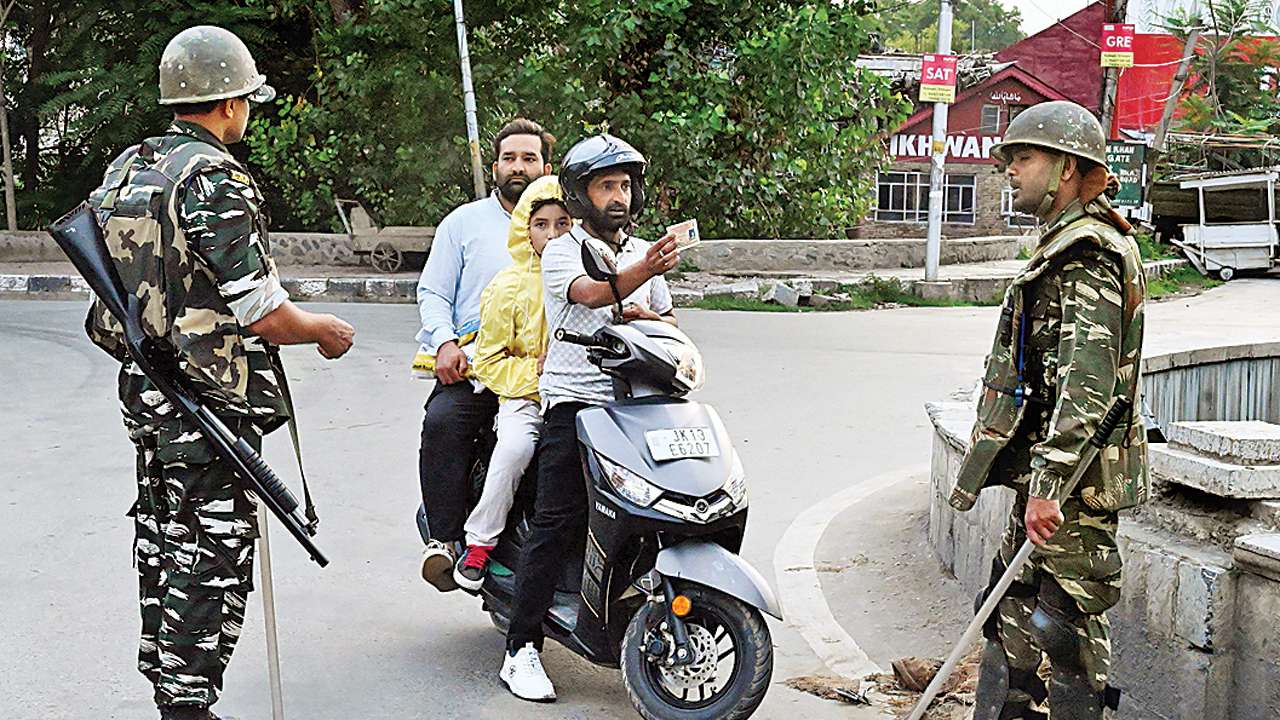
The signals from Kashmir are positive and that should be considered good news.
For New Delhi, normalcy remains the best argument in its favour of abrogating Kashmir’s special status. Home Minister Amit Shah reaffirmed this week that Jammu and Kashmir would not remain a Union Territory forever and will get back its statehood status once the situation improves.
For good measure, the Home Minister also said that the notion that only Article 370 protected the Kashmiri culture and identity was incorrect, observing that all regional identities are inherently protected by the Indian Constitution.
The statement coming from one of the principle movers on Kashmir is a sign that India is flexible in its approach, just so long as the other stakeholders also are on the same page. There are other signs too that the ice is melting.
Tourists, the backbone of Kashmir’s economy, who had been asked to leave days before the state was stripped of its special status, are now welcome. In a major step towards restoring normalcy, the state Governor has recalled the security advisory issued over two months ago after holding a review meeting.
More than half-a-million people visited the Valley in the first seven months of this year, according to official data. In addition, some 3,40,000 religious tourists were in the Valley in July before their pilgrimage was called off on the government’s advice. Barely 150 foreign travellers have visited Kashmir after August 5, official figures reveal.
Over the last week, the administration has taken some steps to test the Jhelum waters as it has come under increasing scrutiny for the prolonged clampdown. The first step was the announcement of the Block Development Council (BDC) elections in the state, followed by the permission granted to a National Conference delegation to meet detained leaders Farooq Abdullah and his son Omar Abdullah.
BDC elections, scheduled to be held on October 24, are party-based and delegations, whose leaders are interned, are being allowed to meet party heads so that they can take election-related decisions.
Some other recent steps include reopening of higher secondary schools, colleges and universities, restarting public transport and opening of additional travel counters at Srinagar’s Tourist Reception Centre.
The UT government was apprised of the progress in apple procurement, which has crossed 850 tonnes. The state produces 17.9 lakh tonnes of apple, or 75% of the total production in the country, which also makes it one of the mainstays of the region’s economy.
As part of its ongoing confidence-building measures (CBM) outreach, the Narendra Modi government has decided to procure apples cultivated in Jammu and Kashmir through direct market intervention to enable cultivators to get a better price for their produce under the direct benefit transfer (DBT) scheme. The scheme is slated to enhance apple growers’ income in the Valley by about Rs 2,000 crore annually.
These are all signals of the government’s intent and resolve. Hopefully, in the days ahead, things would be moving to a new normal. It makes India’s case stronger.